Link
As part of the ongoing campaign to call attention to Psychonauts 2 and its Fig campaign, Double Fine is releasing a bunch of old, unseen concept art from the game. It’s super neat and has a bunch of cool ideas and concepts, and some storyboards, and it looks like they’re even uploading some scripting docs. Very cool stuff, and they’ll continue populating this album over time, so take a look!
85 notes
·
View notes
Photo
I’d be terribly remiss if I didn’t jump on this.
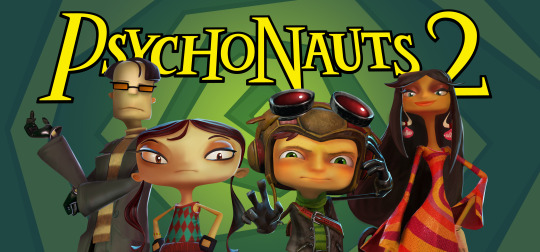
We’re making Psychonauts 2! But we need your help! Back us here: www.fig.co
16K notes
·
View notes
Photo
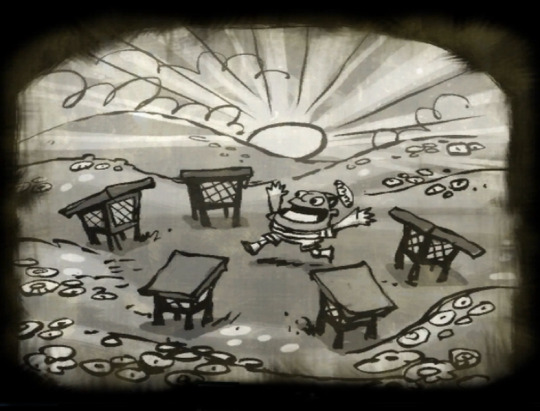
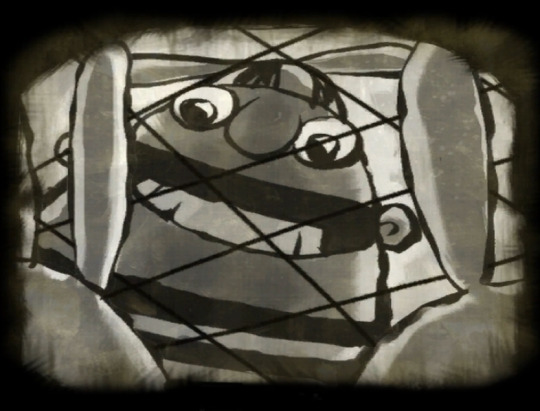
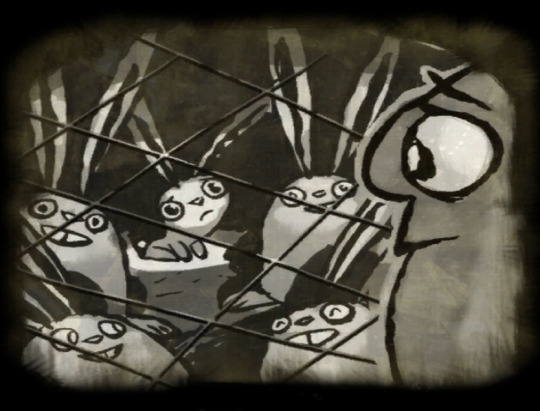
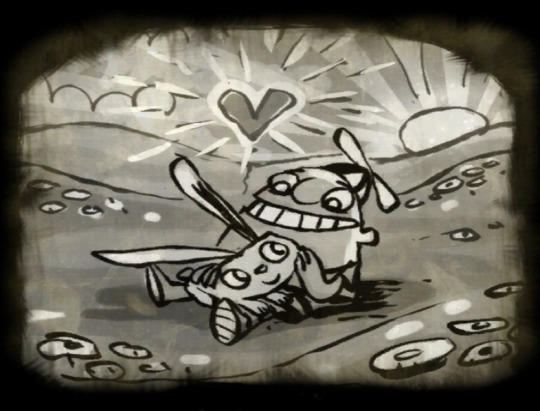
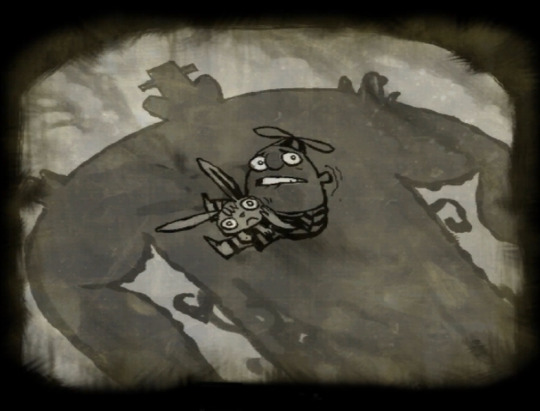
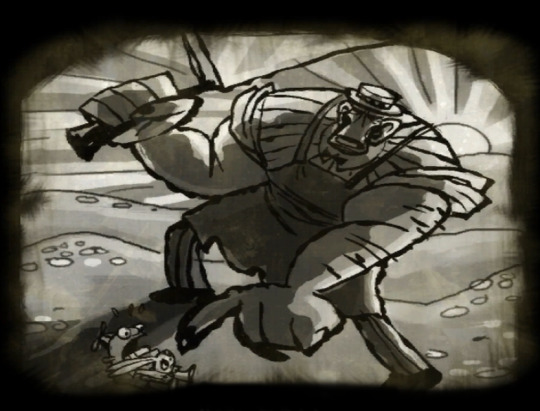
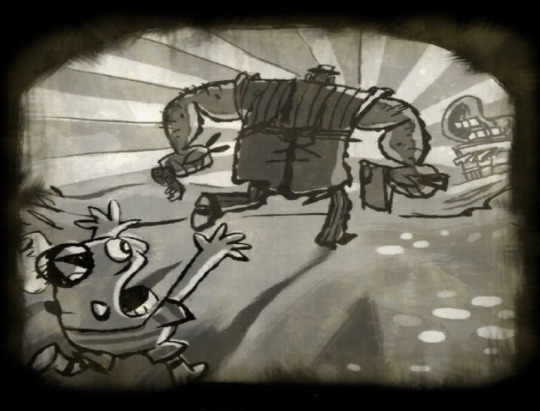

Meat Circus, "The Big Top"
Friendly reminder; if you read Oleander's backstory, it mentions he's an animal empath and can see and hear and feel everything the little bunny is experiencing. This may be up to and including being slaughtered. Little wonder he turned out the way he did.
#Little Oly#Morceau Oleander#Memory Vault#Meat Circus#Psychonauts#IS A QUIRKY AND SILLY GAME ABOUT A SUMMER CAMP AND ALSO INTENSE MENTAL TRAUMA OH MY GOD
322 notes
·
View notes
Text
Addendum : Morceau Oleander
75 notes
·
View notes
Text
18. Meat Circus
Episode Eighteen
Meat Circus
6 notes
·
View notes
Video
youtube
Mental world revisits. (Lungfishopolis, Black Velvetopia, Gloria's Theater, Waterloo World.)
17 notes
·
View notes
Video
youtube
End-game campgrounds talk. Plus Pokeylope.
14 notes
·
View notes
Text
17. Oleander's Brain Tank
Episode Seventeen
Oleander's Brain Tank
Point of No Return
As a note, the game drops a literally labeled POINT OF NO RETURN autosave after you free Lili. This save file is made every time and cannot be overwritten. Despite its name, though, the PoNR is not actually made at the point of no return; in a very nice bit of courtesy, the save file is made right before you start the endgame, so if you stumble into it and only have the game's innate autosave as backup, you'll be able to load the PoNR and finish anything outstanding in the real world. Pretty nice!
4 notes
·
View notes
Video
youtube
How Not to Levitate
I'm... not really sure what happened there.
25 notes
·
View notes
Text
Level Talk: Asylum Ascent
Episode Sixteen
Thorney Towers - Ascent
Thorney Towers Ascent
When you first reach the Thorney Towers grounds, it's a little... different. Whereas Whispering Rock is a safe haven, with camp counselors and bright lights and people, Thorney Towers is run-down, dark, and populated entirely by a set of abandoned asylum inmates. Its first level is the strange, unsettling Milkman Conspiracy, although its subsequent levels never quite capitalize on the same kind of feel. For the best, I think; of all the inmates, Boyd is the only one we can't 'fix', and is possibly the craziest person Raz encounters in the game.
You go through the other inmates' levels and you kind of forget what it is to be on the grounds, or you get used to it. This particular part of Thorney Towers is derelict, but largely inoffensive.
The ascent is...
Gonna be frank. The ascent is creepy.
There is no background music. All you hear is the tower creaking and moaning, the shrill cries of the creature following you and telling you to turn away, and -- worst -- the scuttling and squeaking of the rats. It is utterly barren, with nothing but abandoned wheelchairs and battered furniture and shattered floors and the scrawlings of madmen adorning the walls. The tower is twisted and freakish, and is very effective at capturing the feel of being in an abandoned, condemned building. And that's before it really hits its stride.
The further up you go, the more wrong it is and the more twisted the tower becomes. Physics betray you; the layout stops making sense. At one point you jump up and suddenly the beds are bolted to the ceiling; you leap through a hole above you and land on the wall. The tower changes and becomes impossible, reaching almost Escher levels of design improbability. It's never outright scary (except for the rats the rats the rats), but it's unsettling and actively disorienting.
And, frankly, excellent.
I hit the tower ascent the same way I hit the Milkman Conspiracy when I was younger; in the middle of the night, all lights off, just coming off a delightful high in one of the other mental worlds. The abrupt contrast of going from Black Velvetopia or Waterloo World to smashing into the tower ascent is enough to give pause, and coupled with my unfortunate habits I recall having a really tough time getting through this particular level my first time through the game (at least without turning a couple of lights on).
14 notes
·
View notes
Text
Level Talk: Black Velvetopia
Black Velvetopia itself is the most visually stunning level, and the one that introduced me to the game back during pre-release coverage (specifically, a picture of the fight against El Odio, accompanied by the caption, "As Raz dodges out of the way, he observes the bull is wearing some very dapper boots". I remember some stupid things.) It's vibrant and beautiful, with a distinctive style that makes it pop out from the fare of the rest of the game.
The level itself is solidly designed; it's fun to navigate, the running of the bull is rarely frustrating, and you are given a very obvious and specific direction to work in. The dog painters are paced to give you a decent break from the platforming to get some story, and unlocking the shortcuts across the level feels natural and quite welcome.
And of course, the level is gorgeous.
The level is styles after a black velvet painting, with vivid color standing out against a black backdrop. Everything is in solid, powerful tones, and the level is a joy to just look at and explore. From fountains spewing bright paint to the bright pink bull to the way Edgar's tattoos and jacket design almost seem to leap away from him, the whole experience is just beautiful.
Black Velvetopia is honestly one of the standout levels not just of the game, but of a console generation. I admit that I've had more fun with a lot of games, in the moment, but if you asked me to recall a particular level of, say, an old Ratchet & Clank game, I could tell you about a tense firefight, but the environments just kind of blend together. The game is fun, and the design certainly works, but it doesn't pop.
Don't get me wrong. Games are becoming more and more beautiful, just on their own. But too often 'realistic' winds up being a shorthand replacement for good art direction. You can make something pretty, but to make it memorable you need to remember that you're dealing in a purely fantastic medium. There's nothing keeping you married to perfect proportions, realistic lighting, or (infamously) everything being layered in brown. Black Velvetopia shines from an art direction perspective; even if you have issues with the gameplay of Psychonauts (and some people certainly do), it's a level that you're not going to soon forget.
17 notes
·
View notes
Text
About : Edgar Teglee
Edgar Teglee
21 notes
·
View notes
Photo

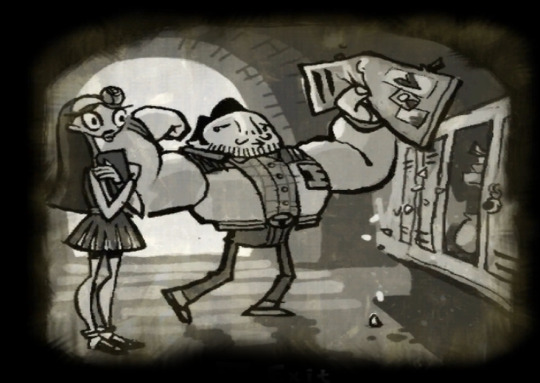
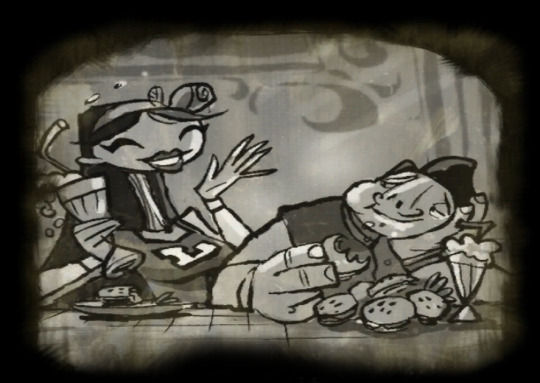
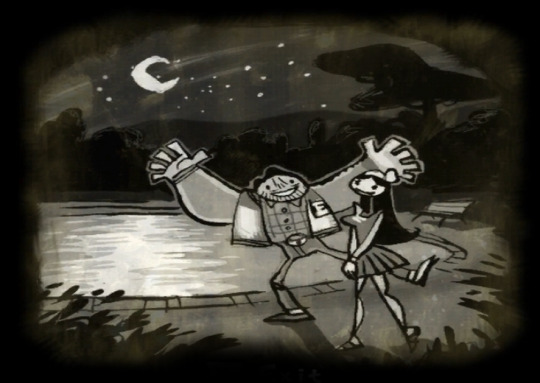
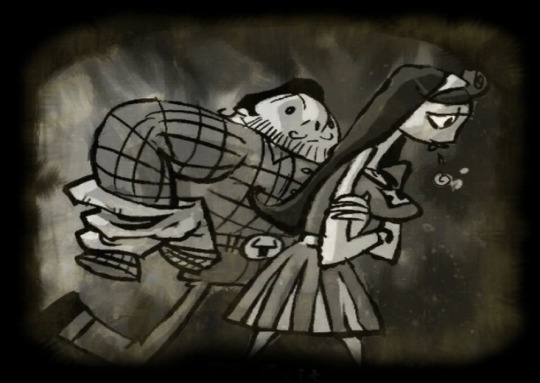
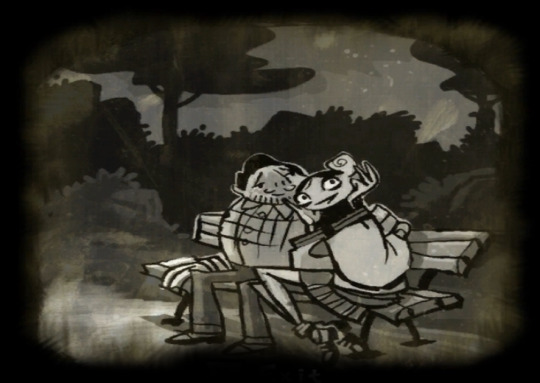


Black Velvetopia, Vault Two
"Edgar's Love"
113 notes
·
View notes
Photo
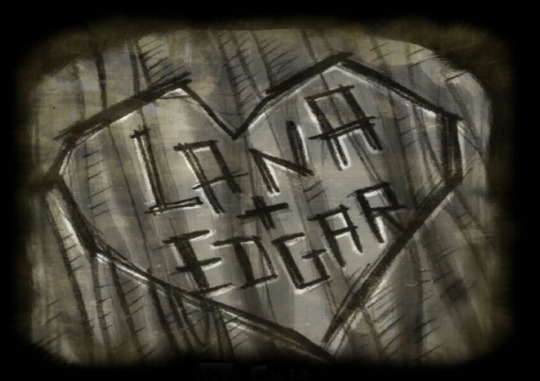
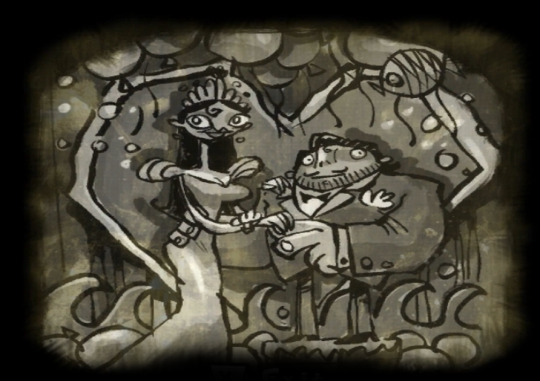

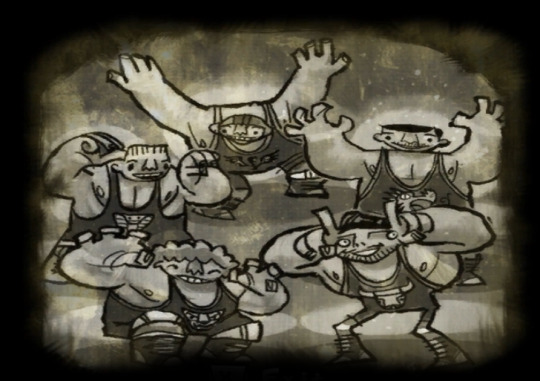
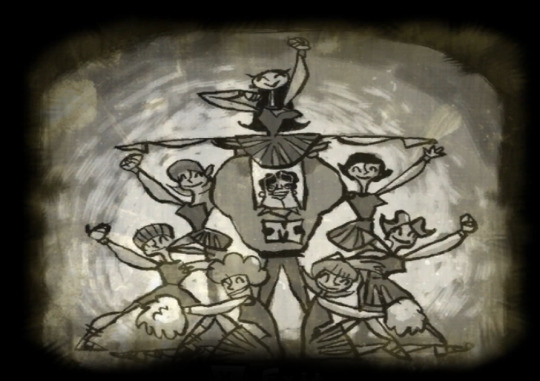




Black Velvetopia, Vault One
"Edgar's Lament"
45 notes
·
View notes
Text
"Smile"
"Smile"
Words: 2241
Date: Circa 2006
The following is a little piece of fanfiction I wrote a distressingly long time ago, concerning the character of Crispin Whytehead. As the one who drove Fred to insanity, it seems fitting to bring this up now.
I imagine people wonder why I did it. Of course they would be curious as to my motives. Not everybody is like me. Very few are. Very few have transgressed as I have transgressed; very few have indulged in their sin as I have indulged in mine.
I do not understand why, myself. I suppose I could say, at the least, that I am weak – I am unable to fight the impulses – they overpower me, consume me with evil desires that I have no wish to undertake.
Or perhaps I do wish to give in to the impulses of my darker half; perhaps I merely am too weak to accept the fact that I enjoy what I do, that I love it, that I long for the next opportunity to undertake my task. Perhaps I simply cannot understand the distinction between pleasure and pain, work for the devil's advocate.
Can I understand this distinction?
Is there a distinction?
I suppose I may be mad, that my desire has tainted me with lust to the point where my sanity has simply left, ghosted away from me in fright. I fear more that I am perfectly sane, and that this impulse is the calm workings of a stable mind. What horror to believe that the human mind was crafted to take delight of my perverse deeds!
But are they so perverse? Perhaps I truly am the last remaining beacon of sanity in a world that anticipates, that fully expects the unleashing of the insane, that relishes in aberrant thoughts and damnable wishes that dwell in the back of the minds of us all. Perhaps my perceived insanity is nothing more than that; perceived, but unreal. Perhaps it does not exist. Perhaps it never existed.
Perhaps that is all.
That they have kept me bound and strangled and tied here with the continual lie that I am unwell, that I cannot be part of society. Am I insane, and they merely keeping me here to prevent my disease from spreading? Or are they insane, and keeping me here to prevent my curative? Am I warped, am I mad, or am I perfectly fine, perfectly sane, perfectly... Perfect.
Nothing is wrong with me, is there?
It doesn't seem so. For as long as I have been here they try to tell me that I am disturbed, that I am unfit to mingle with society, that I have done such great wrong I cannot be released to the world until my mind has been cleansed, purified. They exult purity so much, but can sanity truly be considered pure? Can sanity – the massed jumble of thoughts and morals and virtues and penalties for these virtues and vices and the indulgence of these vices – be gauged on so simple a scale?
I believe I may be insane. But I am only insane as they are sane; I am only unstable as they consider instability. Perhaps it is merely wrong that the human mind be so pleasured by my sinful indulgences; why are their sins never punished, never mentioned, yet mine become so grievous before the law? I do not believe they are grievous; quite the contrary. I believe I have been an incredible aid despite my apparent malfunctions.
I am calm. I am rational. I am not a ravening beast like the man they carried by just a few hours ago; I am not obsessed with the white chalk scrawl upon the wall that labels intricate conspiratorial theories only the truly disturbed could possibly understand; I am not here with that horrid smile that I see some of the inmates bear.
Although certainly I smile. I smile for I know that I have done wrong, that I have paid for doing wrong, and that still I am above them. I watch the security officers drag the inmates past the plate-glass of my cell every day, bringing in new ones, always new ones, never releasing the old ones – we are too far gone to be released again – and I smile to them, for I know that I have given in to my impulses as they only wish they have given in.
Am I mad? Most assuredly.
But only mad as they believe me to be.
I am here for a crime that should have long been committed, and they know it should have been committed, but they had no courage to indulge. Perhaps their catalyst would have been something else, or somebody else, but I can see it under their eyes as the doctors read my historical chart; a flash of guilty acceptance, of guilty admiration. For I have done what they can only dream of doing.
It is knowing that I have fulfilled their desire that slowly drives them mad. I watch them and see the signs as they are consumed by a madness so very different from mine. My madness is something that I have taken to calling sanity – I can see that some of them pass by and believe this. But their madness, which they have also called sanity, is what ultimately tears them apart, their inability to allow their impulses to take over send them out of their minds, transform them into the smiling idiots around me, the man across from me with the white chalk markings burned in his wall, the man next to me who they have put in the straightjacket for fear that he will injure himself too badly in his private war game. I have inquired as to the specifics of this man's indulgence; apparently, he believes himself to be a great emperor still conquering the acres of land before him, calling himself a Bonaparte. Apparently, he only does this on Tuesdays and Fridays.
I must send a smile and a nod to my Napoleonic friend whenever I see him, for we sometimes meet one another in the common room. Had I a hat, I dare say I would tip it to him whenever we pass. I know the man quite well; he was once the head orderly, and he happened to take up the practice of playing a game of Risk with me whenever he happened upon the common room on a day when I was allowed to speak with the other inmates. Rather strange, our last game; I had succeeded in defeating him and he had stepped out to go to the bathroom afterward. I smiled at him as he left, but he never returned, and I packed up the game myself and left it on the table for him should he come back.
I saw him next when they brought him into the cell next to mine. I smiled at him when he was first admitted, and he smiled back before proceeding to pick up a stuffed bear that was still in the cell from the prior inmate (I had a conversation with the man who had been in there before; the orderlies announced the next week they had found he drowned himself in one of the toilets of the bathroom). A distant look in the head orderly's eyes, I remember; and he flung the bear into the opposite wall hard as he dared before lunging at it himself. Dear bear never stood a chance, half its face was ripped away within a moment.
They gave him the straightjacket after a similar incident in the common room. He never did want to play Risk again, and the game still sits on the table. I suppose nobody else knows what to do with it.
There is one inmate who I can respect, for he understands insanity as I understand insanity. We speak on the occasions when he and I are allowed into the common room. We were taken to see the director together one day – what a victorious day that turned out to be! – and the director asked us to detail our histories for him.
I need not repeat what my ally had told him; I do not wish to infringe upon his privacy. His madness is his own business. I also have no wish to detail my own meeting with him; suffice to say that I merely amused him for well into the next hour with the histories of my exploits and, once I was completed, I regaled him with the same quiet smile that I so often meet the wardens with. He sent us away afterward, looking rather pensive, and I could already imagine what dark thoughts lurked in the back of his mind.
I heard the next day that he had leapt from the top of the tower.
I discussed this point with my dear friend the next day in the common room, and he agreed that it was a great victory to be scored. Scored for what? It is impossible to say exactly what, I must admit, but we are, after all, unstable; and I suppose that the unstable have no exact need for a cause for which they can announce victories.
The remaining orderlies must have heard that we had been the last before his counsel, and we were called in to explain precisely what had happened that night, called in one at a time to give solitary confidence. My friend went in first, and came out only a half of an hour later looking rather pleased with himself. My session was rather longer; I explained to him just I had explained to the director. And afterward, I spoke with the orderly; I spoke of him on all topics we could cover: I asked him what the weather was like on the outside; what was going on in politics; how his family was doing. We made idle smile talk. I asked on the side if he played Risk; he said no, he did not. Just the same; I smiled to him as I left the room.
The next day I did not see the orderly; the day after I saw him in the common room. He was in the corner, giggling softly and entertaining Napoleon by bashing two soft, stuffed figures together, making high-pitched combat noises. The next day, I was told, he was found to be swaying from topmost tower with a rope strung around his neck. I can't imagine why, but I could imagine that the other orderlies would wish to speak with me on the possibility that I might have been involved. None of them approached me.
I spoke, occasionally, with the man with the chalk. He was not often allowed into the common room, and when my dear Risk opponent Bonaparte had been the head orderly he was certainly never allowed out when I was present – I believe this was so he could not disturb our games. But since Napoleon had been indicted of the crime of instability, the security shift had allowed him into the common room on some occasions when I was out, as well. We spoke, for I was absolutely fascinated by his theories and curious as to the meaning of the chalk marks on the wall; I had glanced at them fairly often and saw them becoming more intricate, and although I could not read the words I could identify the child-hand drawings he had placed on the wall, at first starting with what I could assume were government officials, shady looking men with briefcases and hats that obscured their faces, and moving on to children – a girl scout once – and then to a post office, a flamingo, a crow, a bush, a bottle of milk.
He was relocated to solitary confinement, his wall of work scrubbed clean. Pity; I had enjoyed looking from afar at his theorems. I believe they gave him a piece of chalk regardless; it would be much easier to smudge away in the padded cell, but he would be able to indulge regardless.
Indulge in his insanity. Release his sanity. They moved him for they feared what I had taught him of the distinction. I could see it on the scrawls lining the wall; he was beginning to figure it out, to reason it out. Of course they eliminated him; eliminated him by placing him in the padded cell.
My friend failed to show up in the common room one day; when I asked what had become of him, they informed me that he had disappeared, but they had an idea of where he was. I wished to see him, but they would not allow me to associate with my comrade, my only equal in the world of sustained madness. I believed at the time they had put him in solitary confinement, as well.
Eventually, they came for me. I can't imagine why they would do so; I suppose they perceived me as some kind of threat. No matter: so they came into the cell and gave me a straightjacket; so they took me to my own room in solitary confinement, somewhere near my friend, near the conspiratorial man, near the little girl who screams and wails in the deepest hours of the night. No matter: I know that, soon enough, the orderlies, the oppressors, will find themselves caught in the spiral and enter these rooms themselves. Napoleon was only the first among them, but I know that my dear Risk opponent shall not be the last.
For I have spoken to them. For I have tilled the seed of damnation within them. For I have opened the door to themselves.
For I have smiled.
18 notes
·
View notes
Photo

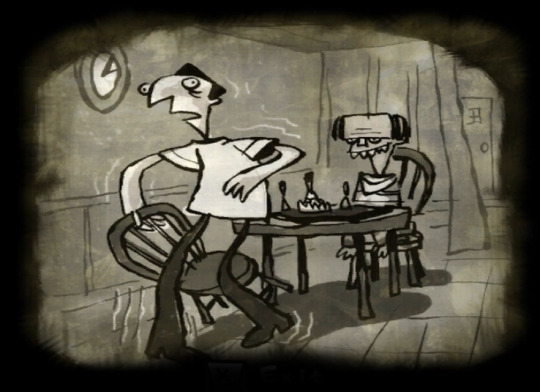
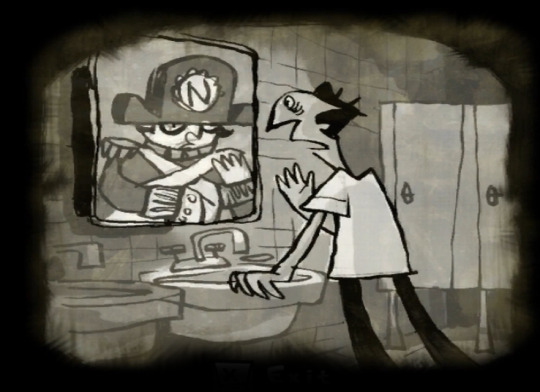

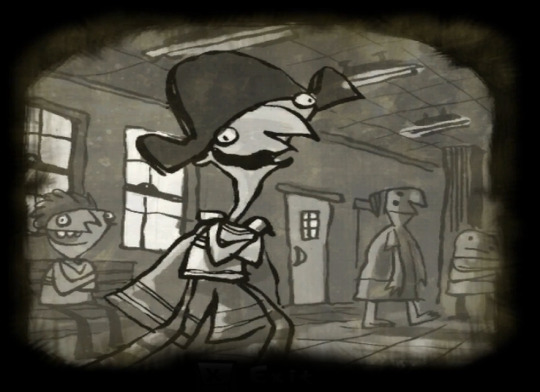
Waterloo World, Vault Two
"Fred vs. Napoleon"
81 notes
·
View notes
Photo
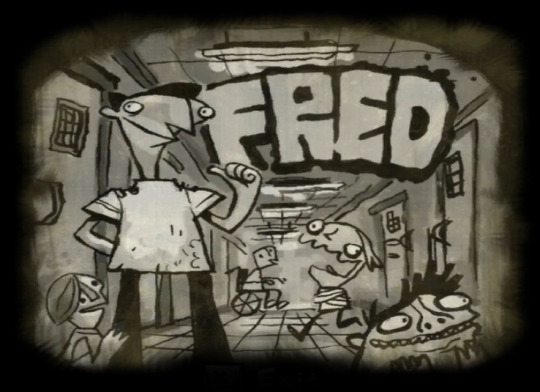
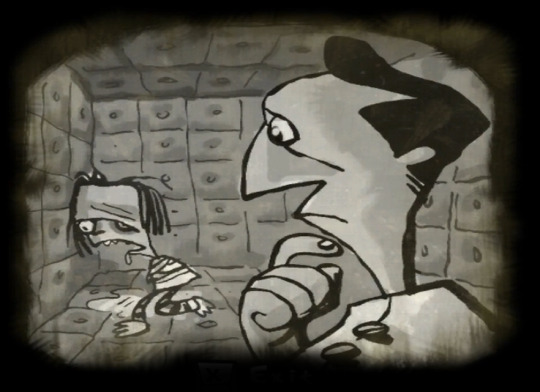
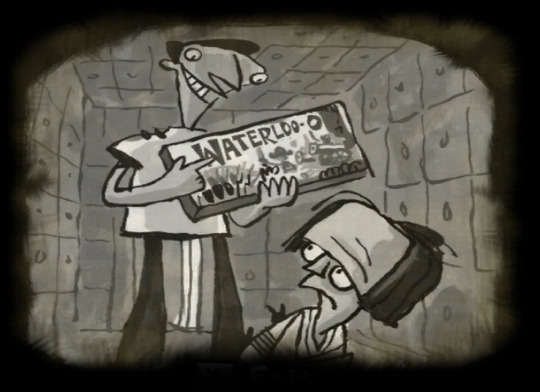

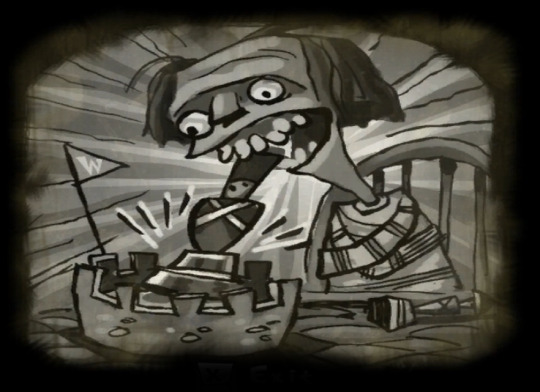
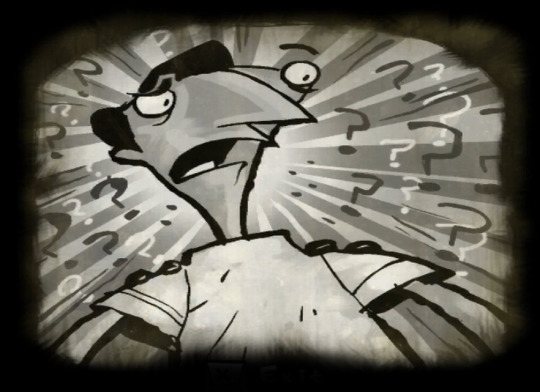
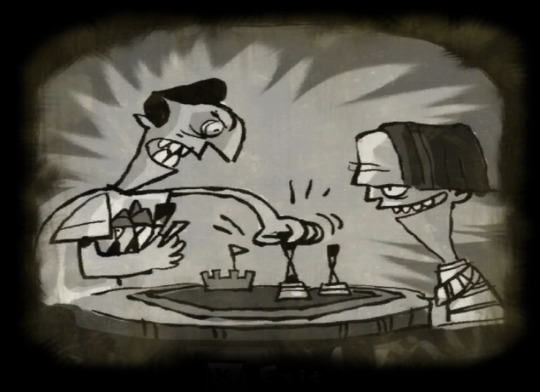
Waterloo World, Vault One
"Fred vs. Crispin"
72 notes
·
View notes